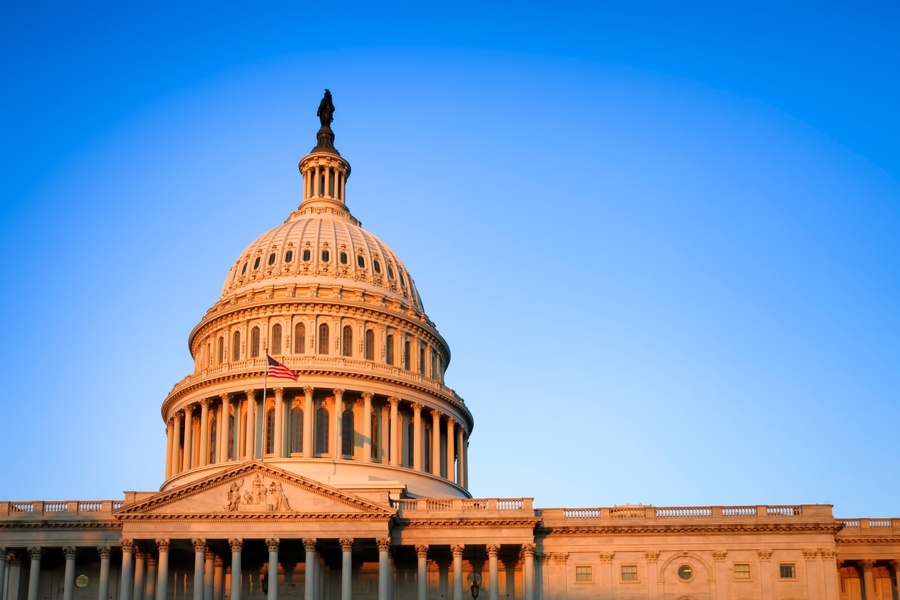

Republican and Democratic lawmakers pressed an SEC official Tuesday to drop a mutual fund reform proposal they say would hurt ordinary investors — but they didn’t get the response they wanted.
Bipartisan ire about the measure, which is designed to bolster mutual fund resiliency during times of market stress, was directed at William Birdthistle, director of the SEC investment management division, during a subcommittee hearing of the House Financial Services Committee.
Under the proposal, the Securities and Exchange Commission could impose so-called swing pricing for shares and hard closes for daily transactions that the agency says will protect share value for investors who remain behind when many other investors bolt for the door and sell.
Opponents argue the changes would be so substantial that funds would diminish as investment vehicles for retirement savers and other ordinary investors.
Subcommittee chair Rep. Ann Wagner, R-Mo., told Birdthistle the approximately 3,000 comment letters the agency has received and the breadth of the pushback, which includes trade groups representing investors and the financial industry, demonstrate the extent of the opposition. “Given these facts, are you willing today, sir, at this hearing to pledge to withdraw this rule as written, and if not, why not?”
Birdthistle said the proposal has received “an enormous amount of comments,” including Wagner’s Sept. 5 letter to the agency co-signed by the subcommittee’s ranking member, Rep. Brad Sherman, D-Calif., and dozens of other members of Congress. In that letter, the lawmakers asked the SEC to withdraw the rule.
Birdthistle told Wagner he didn’t have the authority as an SEC division head to scuttle the proposal.
Wagner asked him for his “takeaway” from the widespread criticism.
“Certainly that it’s a complex dynamic and that we need to give it the full attention that your comments and your letters and your concerns here warrant, and we’ve been doing that,” Birdthistle said. “The [SEC] staff and I work very closely through comment period and beyond to consider your concerns [and] to look for alterations and other ways in which the rule could be adjusted at adoption.”
Birdthistle's reassurance that the SEC is listening to its critics echoed what SEC Chair Gary Gensler told a Senate committee last Tuesday.
Although Birdthistle can’t stop the rule, Sherman said that he should convey to the agency that’s what many lawmakers want.
“I hope I can count on you to go back to the commission, say you came to this subcommittee and you saw a unified, bipartisan and well-reasoned commitment to get you to withdraw the rule,” Sherman said.
Birdthistle also heard bipartisan resistance to an SEC proposal to require investment advisors and brokers to remediate potential conflicts of interest when using artificial intelligence, machine learning and other predictive data analytics. The agency is concerned the algorithms running the programs would maximize for advisors’ revenue rather than investors’ returns.
Rep. Josh Gottheimer, D-N.J., said the rule was written in a way to encompass so much technology that it could crimp advisor-client communication.
“It’s just so broad,” Gottheimer said.
Other lawmakers said the AI proposal could touch on Excel spreadsheets and even calculators. They also asserted that it could stifle financial technology innovation and curb market access for investors with modest assets.
“No technology is prohibited by this rule,” Birdthistle said. “Concerns … about scope are very important and ones we’re taking seriously.”
The public comment period on the AI proposal is open until Oct. 10. It’s unclear whether or when the SEC will promulgate a final rule on mutual fund reform.

Firms announce new recruits including wirehouse breakaways.

"QuantumRisk, by design, recognizes that these so-called “impossible” events actually happen, and it accounts for them in a way that advisors can see and plan for," Dr. Ron Piccinini told InvestmentNews.

Advisors who invest time and energy on vital projects for their practice could still be missing growth opportunities – unless they get serious about client-facing activities.

The policy research institution calculates thousands in tax cuts for Washington, Wyoming, and Massachusetts residents on average, with milder reductions for those dwelling in wealth hotspots.

Yieldstreet real estate funds turned out to be far riskier than some clients believed them to be, according to CNBC.
Orion's Tom Wilson on delivering coordinated, high-touch service in a world where returns alone no longer set you apart.
Barely a decade old, registered index-linked annuities have quickly surged in popularity, thanks to their unique blend of protection and growth potential—an appealing option for investors looking to chart a steadier course through today's choppy market waters, says Myles Lambert, Brighthouse Financial.
